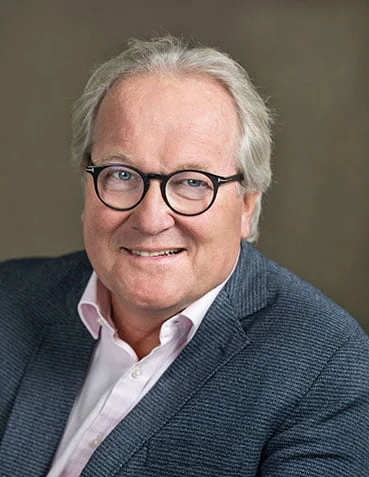
Intellectual property
Copyrights, trademarks, logos, designs, products and services offered. For many companies, their business value lies in their intellectual property. In order to properly protect intellectual property rights (IP), an entrepreneur must register rights in a timely manner. Making and recording agreements about your rights with, for example, partners, licensees or staff is also part of protecting intellectual property. An intellectual property solicitor at Fruytier Lawyers in Business has extensive experience in the field of IP and knows what is needed to protect intellectual property.
Read more on this page about:
- Intellectual property infringement
- Registering intellectual property
- How do I protect my IP?
- Transferring intellectual property
What is intellectual property?
The definition of intellectual property can best be described as the legal protection of intangible creations. The definition refers to the exclusive legal ownership of ideas, works, brands and creations. Examples include patents for inventions, copyrights for literary and artistic works, and registering a trademark for recognisable trade names and logos. Intellectual property rights offer rights holders protection against unauthorised use or replication of creative efforts. This allows authors, creators, designers and inventors to retain control over their own works and the economic benefits thereof.
What does intellectual property law cover?
Intellectual property law encompasses the legal protection of intellectual creative concepts and works, inventions and trademarks. This area of law provides frameworks and regulations to protect intellectual property against unauthorised use or infringement. These rights include patents for technological innovations, copyrights for literary and artistic creations, as well as software and the right to distinctive trade names (registration in the Chamber of Commerce trade register alone is not sufficient). Infringement of intellectual property, such as unauthorised reproduction or counterfeiting, is prosecuted in order to maintain the exclusivity and value of these creations and to stimulate innovation.
Intellectual property law covers various areas of law that are related or overlap in practice. Examples of topics and areas of work within this field of law are:
- Database rights
- Advertising law
- Topographies on semiconductors
- Slave imitation
- Design rights and drawing rights
- Plant breeders’ rights
- IP legislation and regulations (overview)
- Secret know-how
- Copyright
- Licence agreements
- Trade names
- Trademark law
- Neighbouring rights
- Patent law
Registering intellectual property
In order to protect creative efforts, creations and works, the creator or inventor must register the intellectual property. Registering intellectual property lays a legal basis for protecting intellectual property. Registering intellectual property, such as patents, trademarks or copyrights, provides formal recognition of exclusive rights. Legally, this means that the owner’s rights are enforced in the event of infringement of intellectual property.
- Registering intellectual property: the official registration of exclusive rights with a competent authority. Formal registration with, for example, patent and copyright offices, such as the Netherlands Patent Office, trademark registers and copyright organisations, confirms the legal recognition of intellectual property.
- An intellectual property contract: a legal document that regulates the conditions and rights relating to intellectual property. It sets out agreements between parties, such as the owner of the intellectual property and third parties. This contract specifies how the intellectual property may be used, protects against infringement and regulates any fees or licences.
How do I protect my intellectual property?
How you protect your intellectual property depends on the specific type of right that applies to your creation.
- Trademarks and Designs: must be registered with the competent authorities. For the Benelux, this is the Benelux Office for Intellectual Property (BOIP) and for the EU, this is the European Union Intellectual Property Office (EUIPO).
- Unregistered Community Design: The unregistered Community Design arises automatically, i.e. without registration, if your design has been made public within the EU and is new and has individual character.
- Copyright: Copyright arises automatically as soon as you create an original work.
- Patents: For patent protection, you must submit an application to the European Patent Office (EPO) or a national authority.
- Database rights: Database rights arise automatically when you have made a substantial investment in the creation, control or presentation of a database.
- Trade name rights: Trade name rights arise from the use of a name to distinguish your business in economic transactions. Although registration is not mandatory, registering with the Chamber of Commerce can be useful to strengthen your rights.
In addition, there are other ways to protect your intellectual property. This can be particularly useful in situations where standard IP protection does not apply directly, such as ideas, concepts or confidential business information:
- i-DEPOT: The i-DEPOT is a simple and cost-effective way to record an idea or concept. Although it does not create an IP right, it provides a timestamp that serves as proof that the idea was conceived by you on a specific date.
- Non-disclosure agreements (NDAs): A non-disclosure agreement (NDA) is a legal document that ensures the confidentiality of information you share with third parties. This is particularly important when you want to share sensitive data but want to limit the risk of misuse.
Which intellectual property rights should you register and which should you not?
- Rights that require registration:
For trademarks, designs, and patents, registration is necessary to obtain exclusive rights.
- Rights that arise automatically:
Rights such as copyright, database rights, and neighbouring rights arise automatically as soon as the legal conditions are met. This also applies to unregistered Community designs. An unregistered Community design offers – provided the legal conditions are met – temporary protection for new designs that have been made public in the European Union. The protection is valid for a period of three years.
Trade name rights:
- Trade name rights arise through the actual use of the trade name in economic transactions. Although registration with the Chamber of Commerce is not mandatory, it can help to strengthen your rights.
What forms of intellectual property protect my website?
A website can be protected by various intellectual property rights:
- Copyright: The design and visual elements of the website, such as images, illustrations and unique layouts, may be protected by copyright. The software on which your website runs may also be protected by copyright.
- Trademark law: The domain name and/or logo of the website can be protected as a trademark, provided that it has distinctive character.
- Design law: The design of specific graphic elements or the unique interface of the website can be protected under design law, provided that they are new and have their own character.
- Database rights: If the content of the website is systematically organised in a database, for example a product catalogue or data collection, it may be protected under database rights.
- Patent rights: Innovative technological applications or unique functions within the website may be eligible for patent protection.
Is intellectual property a limited right?
No, intellectual property is not a limited right in the legal sense of the word. In private law, a ‘limited right’ has a specific meaning: it is a right that rests on another right and thus limits the powers of the owner of that principal right. Examples of this are a mortgage or a right of easement.
The confusion with IP rights sometimes arises because the term “limited” is used informally to indicate that IP rights are not unlimited. However, these “limitations” have nothing to do with the legal meaning of a limited right, but refer to certain characteristics of IP rights, such as:
- Temporality: IP rights often have a limited duration, for example 20 years for patents.
- Exceptions: There are situations in which IP rights are not completely exclusive, such as the right to quote in copyright law.
- Territoriality: Protection only applies within the regions where the right is registered or recognised.
Intellectual property infringement
The unauthorised use of intellectual property, the reproduction or distribution of intellectual creations without the consent of the rightful owner constitutes intellectual property infringement. This infringement violates the exclusive rights granted to the intellectual property and may lead to legal action, including damages and judicial measures. An infringement occurs when the legitimate rights of the owner are infringed. The exact moment of infringement depends on the specific intellectual property right and (local) legislation.
Is portrait rights intellectual property?
Portrait rights are not considered an independent intellectual property right, but they are covered by copyright law. They are a personality right that derives from the right to privacy. If a portrait is made without the consent of the person portrayed, it may not be made public by the creator or a third party if the person portrayed has a reasonable interest in preventing such publication.
At the same time, a portrait can also be protected by copyright as an original work. In that case, the creator of the portrait has copyright to the work, but these rights are limited by the portrait rights of the person portrayed, which can prevent the portrait from being made public without permission. This underlines the close connection between portrait rights, copyright and the right to privacy.
Transferring intellectual property
Transferring intellectual property involves transferring the rights to a particular piece of intellectual property from one party to another. This process involves drawing up an intellectual property agreement, which sets out the terms and conditions of the transfer of intellectual property. This agreement specifies details such as the scope of the rights transferred, any restrictions, and the remuneration or conditions for the transfer. Intellectual property can be transferred for various reasons. Examples include activating financial value through sale, facilitating strategic collaborations, or utilising the expertise of another party. This transfer requires careful legal handling to safeguard the rights of all parties involved.
Proceedings concerning registered intellectual property
Fruytier Lawyers in Business not only advises, but also regularly litigates to protect rights or to counter allegations of infringement. Although in practice many disputes concerning intellectual property rights are settled, it may still be necessary to bring the dispute before the court in summary proceedings or other proceedings.
Assistance from an intellectual property solicitor
Would you like to know more about intellectual property law? Or are you looking for the most suitable form of intellectual property protection based on specific needs? An intellectual property solicitor protects your interests within the entire legal field. Have contracts, such as licence agreements and transfer documents, drawn up or reviewed.
The solicitors at Fruytier Lawyers in Business have extensive experience in all areas of intellectual property law and will proactively defend your interests. Do you want to protect your intellectual property rights, or are you facing infringement or damage, for example due to lost profits? Feel free to contact an intellectual property lawyer without obligation.
Intellectual property example
Intellectual property that protects innovative and creative efforts comes in many different forms. A specialised solicitor can help you understand and navigate complex intellectual property laws and regulations. From providing targeted advice on the forms of protection for a specific situation and drafting an intellectual property contract to defending a client’s interests in disputes and infringement cases.
- Advertising law
- Copyright logo
- Topographies on semiconductors in the Netherlands
- Slavish imitation
- Design rights and drawing rights
- Plant breeders’ rights
- IP laws and regulations (overview)
- Secret know-how
- Copyright
- Licence contracts
- Database rights
- Trade names
- Trademark law
- Neighbouring rights
- Patent law
Fruytier Lawyers in Business specialises in intellectual property law. We are pleased to provide you with an overview of the activities of an intellectual property solicitor for our clients:
- For a trademark owner/franchisor of espresso bars
– Initiating summary proceedings to protect trade name rights and trademarks against one of the largest European coffee roasters that is infringing intellectual property rights.
– Conducting negotiations and drafting a coexistence agreement.
- For a toy manufacturer
– Advice on copyright infringement on a new product by a Belgian toy manufacturer.
- For an importer and distributor of outdoor sports and camping equipment
– Advice on copyright infringements on photographic material and product descriptions by a parallel importer.
– Advice on the termination of various distribution agreements and conducting negotiations on goodwill payments and the return of stock.
- For various catering entrepreneurs with different establishments
– Advice on copyright and trademark infringements by competitors.
– Conducting summary proceedings against the infringers.
– Drafting cease and desist letters.
- For a clothing designer
– Advice on infringements by competitors of the designer’s copyright and design rights.
– Laying a prejudgment attachment on counterfeit clothing.
– Conducting summary proceedings against the infringing party.
– Drafting coexistence agreements.
- For a manufacturer and importer of jewellery
– Averting legal proceedings for alleged trademark infringement brought by a globally renowned clothing brand.
– Advice on changes to corporate communications and trademark registrations.
- For a film distributor
– Advice on copyright infringement of film titles and artwork by competitors.
– Drafting of cease and desist letters.
- For a French hospitality company with restaurants and bars worldwide
– Conducting opposition proceedings on appeal regarding a trademark application.
- For a nationally operating retailer in the furniture industry
– Conducting summary proceedings regarding trademark infringement.
– Conducting opposition proceedings on appeal concerning a trademark application.
- For an international record company
– Transferring various intellectual property rights to artwork created by Dutch employees and self-employed persons to the company.
- For a Dutch writing duo
– Advising on and drafting the agreement for the translation of the work and the use of copyrights.
- For a Dutch, internationally operating, high-tech logistics company
– Litigation concerning the termination of a cooperation agreement and the cessation of infringement of the company’s rights.
– Advice and drafting of a joint venture in China.
- For a Dutch builder of exclusive high-end yachts
– Advising on and drafting agreements for the preservation and management of various IP rights.
– Advising on and drafting agreements for international sales and distribution.
- For a renowned Dutch sportswear brand
– Advising on restructuring and IP rights.
– Advice on the transfer and drafting of (new) licence agreements.
- For a Dutch internet company operating internationally
– Acted against infringement of intellectual property rights and against the unlawful use and misappropriation of company information.
- For a Brazilian author
– Securing publication rights in accordance with a tax-efficient royalty structure from the United Kingdom.
- For a Mexican telecommunications organisation
– Securing the release of goods after customs seizure for alleged infringement of patent rights.
- For an English game developer based in the Netherlands
– Advising on and drafting agreements for confidentiality, exploitation and transfer of game concepts.
- For an internationally operating company of high-tech water-saving products
– Advising on and drafting agreements with third parties, as well as conducting various legal proceedings.
- For a Japanese knife manufacturer
– Advice on the protection of intellectual property rights and litigation against the trade in counterfeit goods.
- For a Dutch furniture maker
– Advice and negotiations on the lifting of precautionary seizures and confiscation of products, moulds and administration following ex parte orders from the court.
Bert Gravendeel
Intellectual property & IT and ICT law
Britt Beumer
Intellectual property & IT and ICT law
Mignon de Vries
Intellectual property, Corporate Law & Disputes regulation and litigation
Intellectual property
- Know-how as a trade secret or a patent?
- License or transfer of intellectual property rights
- F.A.Q. intellectual property rights
- Intellectual property in company acquisitions
- Trade Name Law – Domain names
- Slavish imitation
- Semiconductor topographies
- Plant breeders' right
- License contracts
- IP laws and regulations (overview)
- Design Law
- Database Law
- Competition Law
- Advertising Law
- Advertising law
- Topographies on semiconductors in the Netherlands
- Slave-like Imitation
- Design rights and drawing rights
- Plant breeders' rights
- Intellectual Property Law and Regulations (overview)
- Secret know-how
- Copyright
- Licence agreements
- Trade names
- Trademark law
- Neighbouring rights
- Patent law





